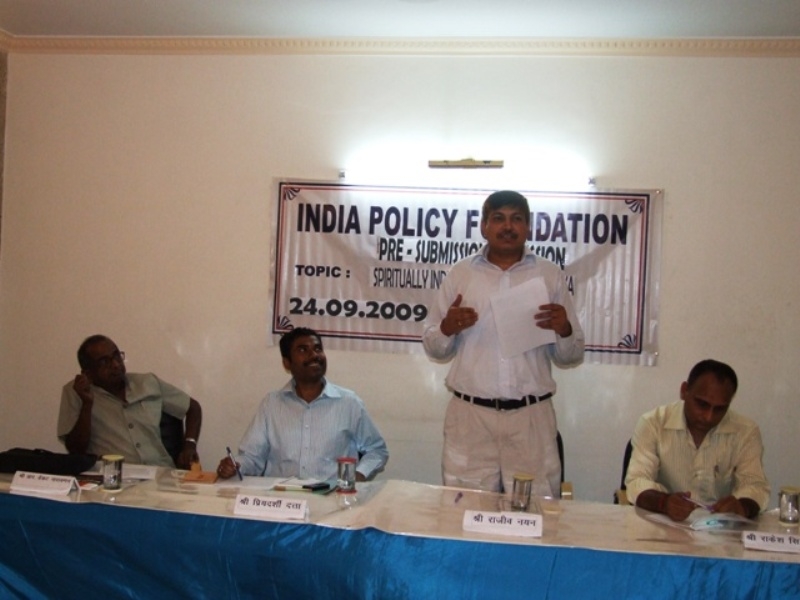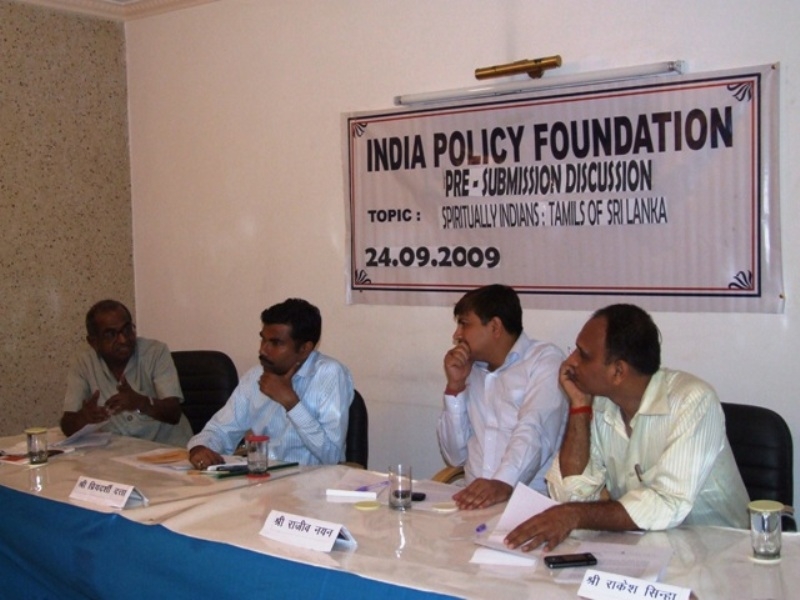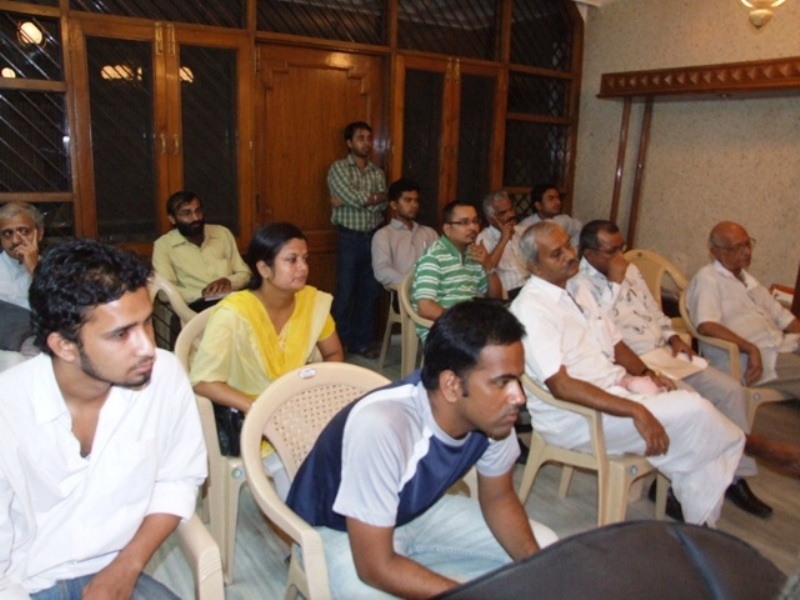SPIRITUALLY INDIANS THE TAMILS OF SRI LANKA
Total Views |

Sep 24, 2009, IPF Seminar Hall
Chief Guest: Shri R. Venkatanarayanan, Former Secretary, Govt. of India,
Chaired by : Dr. Rajiv Nayan, Senior Fellow, IDSA
Speaker: Shri Priyadarshi Datta, Journalist,
The island country, Sri Lanka, is not only geographically important for us but it also contains a large number of Tamil people who had long back migrated from India. For several decades, they had been fighting injustice perpetrated on them by the Sinhala majority government of that country. India has always been sensitive to this issue, but, of late, this issue has disappeared from the consciousness of the political dispensation of India. Hence, the Foundation thought it fit to bring the issue to the limelight by organizing a discussion by a select audience on the forthcoming monograph on the topic.

Priyadarshi Dutta reminded that the Ceylonese Tamils were the first to accord an enthusiastic welcome to Swami Vivekananda in January, 1897 after his return from the West and his roaring success in the Chicago Parliament of Religions. The Tamils of Ceylon were passing through a period of Hindu Renaissance which was initiated by the noted Shaivite reformer Arumuga Navalar (1822-1879). This is the point from which modern Tamil nationalism emerged.

Tamils never demanded a separate Eelam in Sri Lanka at any time before the Vaddukodai Resolution in 1976 because they always viewed themselves as one of founding races rather than a minority. But failure of democratic dialogue in the face of Sinhala majoritarianism radicalized the Tamil youth, said Rajiv Nayan. He wanted to know if Sinhalese are not ‘spiritually Indians’ because their forefathers too went to Sri Lanka from India. At this the writer said Sri Lanka was never exactly the Suvarnabhumi (South East Asia) where Indian culture had penetrated. Although Buddhism is an Indian religion it has sadly fortified ultra-nationalism among Sinhalas in Sri Lanka. Buddhist revivalism (1870-1915) churned out monks, who otherwise unemployable, grew as a class apart that wanted to control political power. The ‘Indian-ness’ of Sinhalese can be reawakened but with protracted and painful cultural efforts. But it is manifest in the Lankan Tamils.